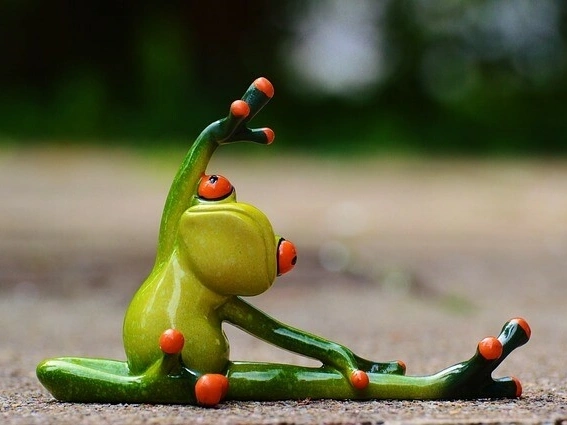
While most of us will never attain these lofty heights of gorgeousness, we can however take the same care of our health that the rich-listers take. A good start is regular health checks. You don’t need to do it all in one week, spread it out over the year. Some checks you can do for yourself but others will need help from a professional. A good start is with your GP where you can probably tick a few things off at once. Some doctors offer a well-women package which will include all the assessment they think you need for your age in one fee. Then all you need is a red carpet up to your front door and you’ll be up there with the best of them.
Here’s a list to get you started:
Breast health - It’s important that you keep up to date with regular mammograms after turning 50 and be aware of any unusual changes happening in your breasts. Eligible women aged between 45 and 69 can get a free mammogram (a kind of breast check) every 2 years. This is part of a programme run by BreastScreen Aotearoa. There’s lots of information on the BreastCancer NZ website.
Breast cancer is the most common cancer for Kiwi women. It affects one in nine New Zealand women over their lifetime. Most breast cancers occur in women over 50 years of age.
Cervical health - Having regular tests can reduce a woman’s risk of developing cervical cancer by 90%. Smear tests are available at your GP, family or community health centres. The National Screening Unit can help you find someone to take your smear. For more information take a look at timetoscreen.co.nz.
In New Zealand, about 150 women are diagnosed with cervical cancer each year. The best protection against developing cervical cancers is having a regular smear test.
Bone health – A bone health check identifies bone weakness which can signify Osteoporosis. Osteoporosis is a condition that causes your bones to be thinner and weaker than normal. This means, they can break easily, such as after a small bump or fall. A check can be done with your doctor. They will consider things like previous fractures (often of the wrist, hip or spine), a loss of height or stooping and a curved spine. If you have any risk factors you may need a bone density test, called a DexaScan.
In NZ, Osteoporosis affects more than half of all women over 60 years, as well as a few younger people.
Heart health–Your doctor can help ensure that you have the appropriate risk assessment and diagnostic tests such as testing your blood pressure and cholesterol. The heart foundation has a lot of information about risk factors and things you can do to improve your heart health.
Nearly 60 Kiwi women die from heart disease every week, making it New Zealand's single biggest killer. Despite the statistics we tend to think of it as a ‘mans disease’ so it’s often under-treated and overlooked in women.
Blood Sugar - Diabetes. Diabetes is closely linked with heart disease, so while you’re talking to your doctor about your heart health you should also talk to them about diabetes and have your blood sugar levels tested. This is especially important if you have high blood pressure or if you take medication for high blood pressure. Diabetes, if untreated, is a particularly insidious disease that can affect the heart, brain, eyes, feet, kidneys, and nerves. There is lots of helpful information at Diabetes NZ.
Diabetes is the largest and fastest growing health issue in New Zealand.
Bowel health We have a national screening programme for Bowel Cancer which is being rolled out progressively throughout New Zealand. Once fully implemented it will offer free screening to all eligible New Zealanders aged 60-74 years and can be done at home. You can find out more at timetoscreen.co.nz.
Bowel cancer is the second highest cause of cancer-related death in NZ, 2nd to Lung cancer and is more common in people aged over 50.
Oral health – The media regularly have stories on child dental health in NZ but that’s not to say that those of us over 50 can rest easy. The story hasn’t changed much, to maintain good oral heath brush twice a day, floss regularly and avoid sugary food and drinks. The NZ Dental Association recommends vesting your dentist once a year to detect any problems early.
Eye health and vision - If you’ve made it to 50 without needing a vision check you’re probably patting yourself on the back. Eye health and vision can deteriorate as we age. Make time for an eye check at least every 2 years, or yearly if you have a family history.
More than 70,000 New Zealanders aged 40 years and older have glaucoma (at least half do not know they have it) and twenty-five thousand New Zealanders have already lost sight due to Age Related Macular Degeneration (ARMD).
Skin health Those of us over 50, or even 40, remember the days of coconut oil and summer before we knew about the ozone hole. Which perhaps goes someway to explain why New Zealand has one of the highest rates of skin cancer in the world and why Melanoma is New Zealand’s most common cancer. Check your skin regularly for any changes and if you have any concerns have a full skin check with your GP, dermatologist or other skin specialist.
Melanoma is the fourth most common cancer in New Zealand. New Zealand and Australia have the highest rates of Melanoma in the world.
Lung health. If you are a smoker, quitting smoking is one of the best health moves you can make. If you have a persistent, unexplained cough, wheezing or chest pain, ask your doctor to check your lungs. They will will ask about your health history, smoking history, and exposure to harmful substances. He or she will also do a physical exam and may suggest some tests.
Lung cancer is the biggest cause of cancer death in New Zealand – largely because it is often detected late, when the disease is very advanced and has spread to other parts of the body.
Mental health.This one isn’t so much a reminder to get your mental health checked but a reminder to look after it. Keep active, eat well, be social, manage your stress and talk to someone if you’re feeling tired and overwhelmed. Your GP can help you find the right person or service.
One in 6 New Zealand adults are likely to be diagnosed with a common mental disorder in their lives. This includes depression, bipolar disorders and anxiety disorders. Women are more likely to experience a common mental disorder than males, regardless of age.





